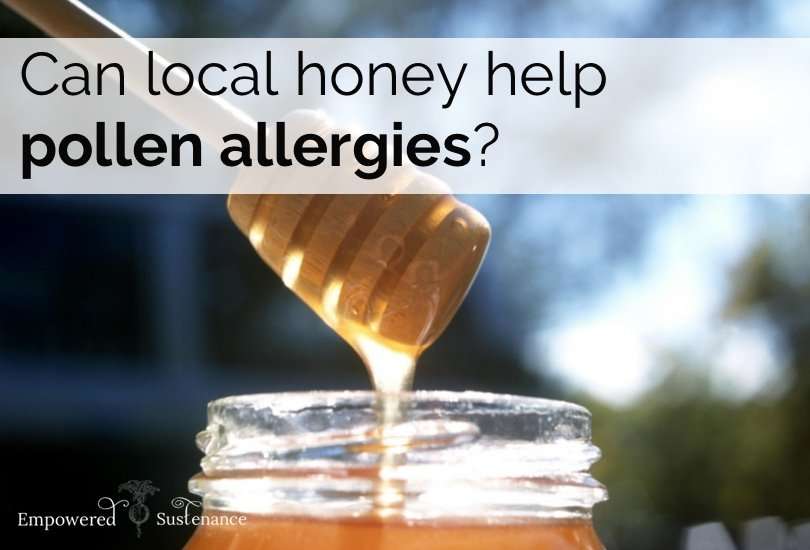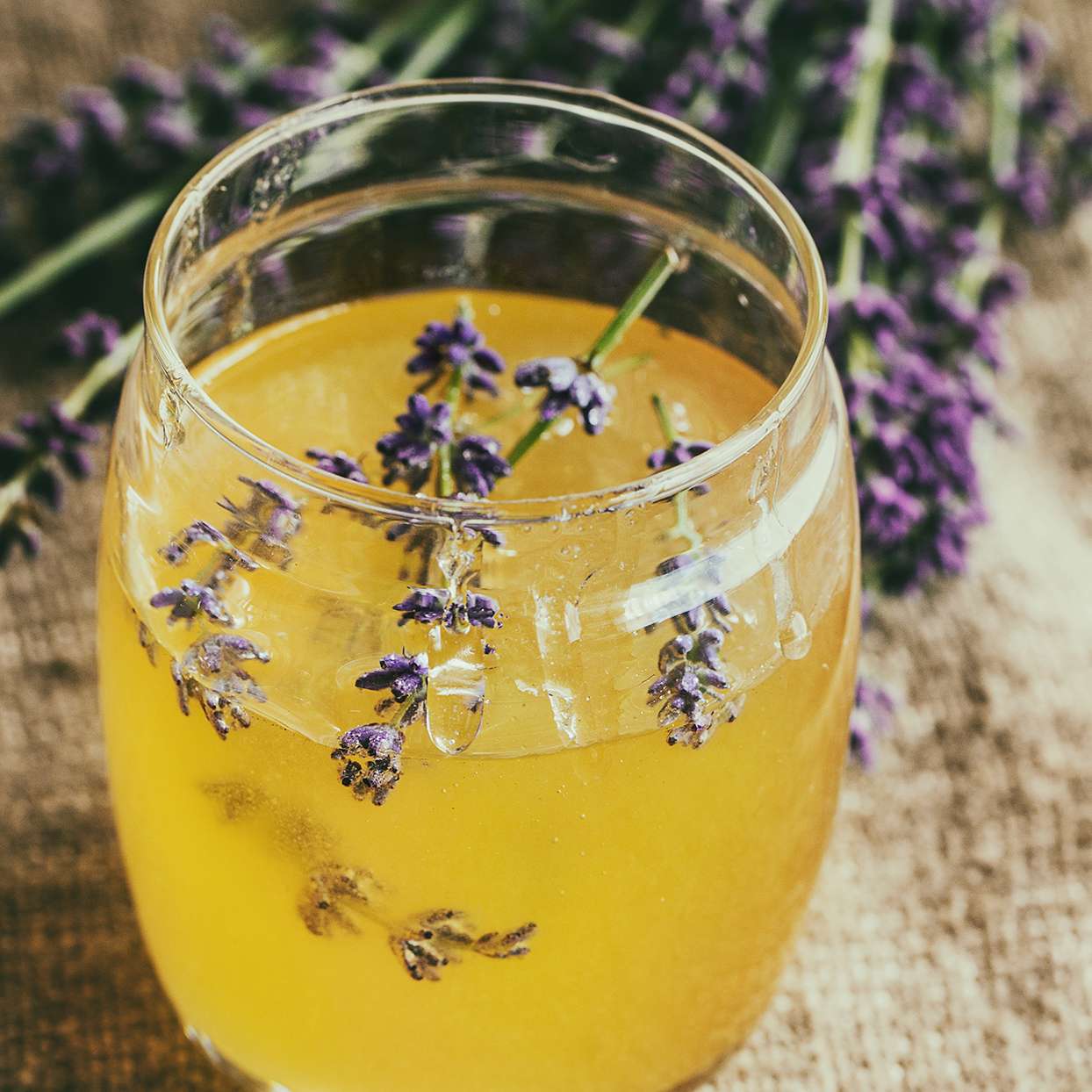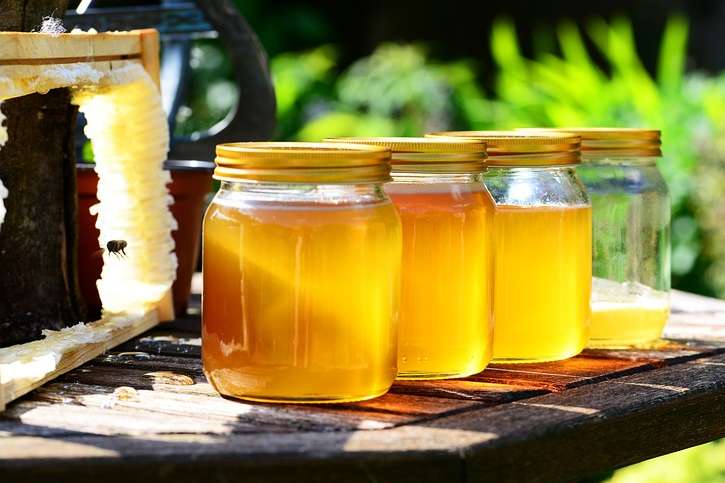Does Honey Pose Health Risks
Honey has long been used as a cough suppressant. However, local, unprocessed honey may contain dust particles, bee parts, mold spores, and bacteria which can have some health risks
In rare cases, eating unprocessed honey can cause a serious allergic reaction , leading to itching, hives, or swelling of the mouth, throat, or skin.
The Centers for Disease Control and Prevention does not recommend giving honey to children under 12 months because it may contain a toxin that can lead to a dangerous condition called botulism.
How To Effectively Manage Allergy Symptoms:
Of course, if you’re looking for treatment methods that do work for your allergies, there are many proven methods.
“The best strategies for battling allergies are taking steps to limit your exposure to the things you’re allergic to and taking the appropriate medications to keep symptoms under control,” says Dr. Reisacher.
If you’re unsure about the best allergy medications for you, your doctor can provide allergy testing to find the appropriate ones.
“I highly recommend talking to your healthcare provider about getting tested to find out what you are allergic to,” says Dr. Wright. “There is an allergy blood test available, which can evaluate you for common environmental allergens, including pollens , dust mites, animal dander, and molds.”
How Honey Could Cure Your Allergies
There have been no peer-reviewed scientific studies that have conclusively proven whether honey actually reduces allergies. Almost all evidence regarding the immunizing effects of eating honey is anecdotal. But these reports have proven persuasive enough for some people to try to fight their seasonal allergies by eating honey every day.
Without scientific inquiry, we’re left with only theories about how honey could reduce allergies. The prevailing theory is that it works like a vaccination. Vaccines introduce dummy versions of a particular virus or germ into the body and effectively trick it into believing it’s been invaded, triggering an immune system response . This produces antibodies designated to fight off the foreign invaders. When the body is actually exposed to the harmful germ or virus, the antibodies are ready for them.
As innocuous as honey seems, it can actually pose health risks in some cases. Honey proponents warn that there is a potential for an allergic reaction to it. And since honey can contain bacteria that can cause infant botulism, health officials warn that children under 12 months of age whose immune systems haven’t fully developed shouldn’t eat honey at all .
The study was never published, but the anecdotal evidence in favor of honey as an allergy reliever continues: Several of the study participants asked if they could keep the remaining honey after the experiment was concluded.
Read Also: Can You Take Benadryl And Allergy Medicine
Local Honey As A Seasonal Allergy Relief
Spring has officially started! This means beautiful flowers, lots of food for our bees, but also those all-too-familiar allergy symptoms. This year you can say goodbye to watery eyes, itchy skin and runny noses. All thanks to your local honey. I can hear you thinking: How can honey help with this? Well, not all honey can help ease your seasonal allergy symptoms, but local honey can! And this is why
Why Does Honey Not Help With Allergies

According to the American College of Allergy, Asthma, and Immunology, there is no scientific proof that eating local honey will improve seasonal allergies.
Facts that contradict this theory include the following:
- Honey collected by bees often contains pollen from brightly colored flowers, which is not the same pollen responsible for most allergies .
- Bees mix their food with digestive enzymes to turn it into honey, which changes the pollen protein.
- Enzymes from your stomach that are released during digestion would remove or break down any pollen ingested.
- Therefore, you would not be ingesting enough intact pollen for your immune system to start becoming desensitized to it.
Don’t Miss: How To Get Rid Of Allergies Naturally
Honey For Allergies: Does It Work
A common natural remedy is using local honey for allergies. Its widely believed that eating local honey will expose an allergic person to small amounts of local pollen, which will desensitize them to that allergen and improve their allergy symptoms. Unfortunately, this is not scientifically proven. Also, eating honey can pose risks to people with severe allergies or children.
Why Local Raw Honey Helps Allergy Sufferers
The local pollens that are transferred into the raw honey can be taken to build immunity. If you are able to take two teaspoons of local raw honey a day two months before your allergy season begins, you can ward off many of your allergy symptoms. If you are in the midst of allergy season, begin taking the local raw honey immediately. This is not to say you should not consult your doctor or you should ignore your doctors directions. It is just a less expensive way of dealing with allergies.
You can find local raw honey at farmers markets and even your local grocery stores. You may even know a local beekeeper who sells raw local honey. The great thing about honey is that it keeps forever in other words, honey does not spoil, which only adds to its benefits.
Local honey is key when warding off allergy symptoms.
Samantha Holland
Also Check: Do Allergies Change With Age
What Does Science Say About Honey And Seasonal Allergies
Unfortunately, honey does not help with allergies. Bees eat nectar and gather pollen produced by brightly colored flowers. These are not the same pollens responsible for most allergies . Very little of these common pollen allergens would make it into honey.
Also, the bees mix their food with enzymes to start digesting it to turn it into honey. This changes the pollen protein. And then processing, pasteurization, and even digestion by your own stomachs enzymes would remove or break down pollen. You would not ingest enough intact pollen for your immune system to start becoming desensitized to it.
David Stukus, MD, and a member of AAFA’s Medical Scientific Council, gives a simple explanation:
The old ‘honey cures pollen allergies’ gambit. Unfortunately, it does not. Easy explanation:-Bees collect pollen from flowers-This is different pollen than what causes allergy symptoms-If honey contained pollen that causes allergies, it would create, not treat, symptoms
Dr. Dave Stukus
A group of University of Connecticut allergists conducted a study with a small number of people with seasonal allergies. The people in the study ingested atablespoon of honey each day.They kept a diary log and tracked common allergy symptoms. The study concluded that the people who had taken the honey did not get relief from their seasonal allergy symptoms.1
Can You Eat Honey If You Are Allergic To Pollen
Allergic reactions can happen when people are exposed to pollen, whether they are allergic to it or not. Pollen is a type of fungus that lives in the air and can cause an allergic response in people who are allergic to it. If someone is allergic to pollen, they may experience an allergic reaction when they eat honey. Honey is a type of pollen-containing substance and can be a trigger for an allergic reaction in people who are allergic to pollen.
Read Also: Can Allergies Cause Ear Pain
Why Is It Better To Buy Local Honey
There are a few reasons to consider buying local honey. One reason is that honey is produced in a specific place and region, meaning that it is of high quality. Additionally, honey is not exposed to a range of environmental contaminants, meaning it is healthier for you and your family. Finally, honey is often cheaper than buying conventionally produced honey.
Can Local Honey Really Help With Seasonal Allergies
Seasonal allergy sufferers know that relief from streaming eyes, itchy throats, and stuffy noses can be elusive. One of the more widely touted home remedies is eating local honey or bee pollen to help prevent symptoms. The theory is that by exposing yourself to pollen produced by nearby plantsâpresumably the same ones triggering allergic responsesâyou can train your immune system to not react.
If you’re plagued by pollen, you might be tempted to stock up on local honeyâbut don’t head to the farmer’s market just yet. According to the American College of Allergy, Asthma, and Immunology, allergists donât believe local honey has a medicinal effect on allergies.
There are a few reasons why honey, delicious as it is, isn’t an allergy cure-all. For one, most people with seasonal allergies are responding to pollen from trees, grasses, and weedsâplants that bees rarely pollinate.
Whatâs more, pollen of any variety isnât present in honey in large quantities. Bees make honey from nectar, not pollen any pollen that ends up in honey is there accidentally, and according to the National Honey Board, it’s only present in trace amounts that won’t have a noticeable effect on your immune system.
Recommended Reading: Can Pollen Allergies Cause Joint Pain
Are There Any Risks
Let’s say you genuinely believe that ingesting local honey improves your allergy symptoms. You may think there’s no harm in continuing to eat it therapeutically, anywaybut that’s not necessarily the case, Dr. Marks-Cogan says, particularly if the honey is raw.
“Raw local honey is not filtered and processed the same way as the honey in stores. So it could contain flower pollen, bee venom, bacteria, or other contaminants,” she says. “A person could potentially have anaphylaxis if the raw honey they ate contained any bee venom that they are allergic to.”
It’s also important to remember that honey is primarily made up of sugars and water, and even if you’re taking it therapeutically, it’s high in sugar and counts toward your daily sugar intake.
There Is Some Good News About Honey

Dont toss your honey out just yet. Eating honey has many other benefits that can help you optimize your experience during the season. For instance, it can help soothe a cough, especially when used to sweeten tea instead of using sugar. Just dont give it to kids younger than a year old, because it can cause a life-threatening illness called botulism.
There also might be some potential of using honey at high doses alongside normal allergy treatments to help manage the symptoms of seasonal allergies. There are few studies on this topic, and they often provide mixed results. But one small study found that large doses of unprocessed honey seemed to help sufferers of seasonal allergies deal with their symptoms, at least for a little while.
Of course, youd probably need to eat a lot of honey. In that particular study, participants ate at least 50-60 grams of unprocessed raw honey every day for a couple of months.
Don’t Miss: Can Allergies Cause Jaw Pain
Local Honey For Allergies Does It Work
Aside from raw honey, the most misunderstood beehive product is the concept of local honey. Vague rumors about its possible allergy-prevention virtues are becoming more prevalent, prompting people to seek honey that is local, thinking that it might be good for allergies.
But what does local mean? How is honey qualified and identified as local? Is non-local honey bad or useless?
What Are The Benefits Of Breathing Healthy Air And What Are Everyday Things That People Can Do To Breathe The Fullness Of Life
Clean air is essential for healthy lungs. The American Lung Association works to ensure that the air we breathe is clean and safe from harmful pollution. In fact, every year we publish our State of the Air Report, which looks at two of the most widespread and dangerous air pollutants, ozone and fine particulate matter. Our 2021 State of the Air Report found that more than 4 in 10 Americansover 135 million peopleare living in places with unhealthy levels of ozone or particle pollution.
One of the most important things you can do to Breathe the Fullness of Life is to keep sources of pollution out of your home. Check out these commonsense tips on Lung.org. Additionally, ventilation helps reduce indoor air pollution, but it works best if paired with keeping known sources of air pollution out of the building. For tips on how to use ventilation to protect your lung health, check out our section on Ventilation: How Buildings Breathe.
Don’t Miss: Can Allergies Make You Short Of Breath
Whats The Final Verdict
With all that said, its time to answer the questiondoes eating honey help with seasonal allergies?
Well, it can certainly help you manage symptoms like a cough. And the theory about pollen in the honey makes sense. But, for now, its best to reach for the allergy medications and limit your time outdoors until pollen season has ended for the year.
References
How Much Local Honey For Allergies
Suppose that you have obtained local raw honey and now want to use it to treat your allergies. You may be wondering how much honey for allergies will make a difference. Well, you should start with smaller doses. The idea is to provide your body with a safe amount of pollen everyday so it could develop a tolerance against it. It is okay to take a tablespoon of honey daily, but do not take too much too early or you may actually make you allergies worse. Here are a few tips to consider:
-
You can consume a tablespoon of honey once a day. Instead of taking it by itself, you can also take it with foods. Apply it to a toast and enjoy!
-
Avoid using honey when cooking or baking something. You need a specific amount of pollen to treat your allergies, but heat can destroy the pollen in it the honey.
-
You can add honey to a hot beverage to enjoy its benefits it works because the beverage is less likely to be hot enough to destroy the pollen.
Read Also: What Are Allergies In The Winter
Local Honey Does Have Unique Health Benefits
“Research suggests that the chemicals in honey may actually play a role in suppressing the genes that make us more susceptible to histamine, the chemical in our body that causes itching, sneezing, and runny nose,” says William Reisacher, MD, allergist, and director of Allergy Services at NewYork-Presbyterian and Weill Cornell Medicine.
Honey has also been studied as a cough suppressant and an anti-inflammatory, so it’s not a surprise that it’s been considered for allergy relief.
RELATED: Your guide to the anti-inflammatory diet that heals your gut, slows the signs of aging, and helps you lose weight.
Other Ways To Relieve Seasonal Allergies
1. Neti Pots
This treatment requires you to rinse your nasal cavity using a saline solution. It loosens mucus and flushes out pollen and other allergens. You just fill it with warm water and salt, then tilt your head so you can pour the solution into one of your nostrils, letting it flow out the other side. Finally, repeat on the other side.
2. Saline Spray
A saline spray works similarly to a Neti pot but can be easier to use. They let you deliver the spray in a more gentle, even fashion. Sprays, however, are just as effective at relieving the symptoms associated with allergies in the same way as Neti pots.
3. HEPA Filters
HEPA filters are a great alternative to local honey allergies treatment. They trap allergens along with airborne irritants, including dust and pet dander. You can find a portable air cleaner with a HEPA filter for your bedroom or small spaces or make sure to include a HEPA filter in your home’s HVAC system. Dehumidifiers and air conditions can also improve the cleanliness of the air.
4. Herbal Supplements
Herbal supplements like eyebright, goldenseal, and spirulina can help relieve allergy symptoms as well. The extract butterbur has shown the best results by reducing airway inflammation. Doctors also suggest their patients try bromelain which is an enzyme in pineapple that can minimize inflammation following sinus surgery.
5. Hot Shower
6. Steam Inhalation with Eucalyptus Oil
7. Acupuncture
8. Spirulina
9. Allergy Shots
10. Sublingual Immunotherapy
You May Like: Is Allergy Testing Covered By Insurance
Tell Us About The Fight For Air Climb
The American Lung Associations Fight For Air Climb is the nations premier stair climbing challenge. At 38 events nationwide, children and adults of all ages participate in this celebratory stair-climbing adventure. Pre-pandemic, the Fight For Air Climb was held in several of our countrys most iconic skyscrapers. This year, the Lung Association invited participants outdoors for a one-of-a-kind adventure to support healthy lungs and clean air. In fact, Dale was among the companys team of more than 50 employees that climbed the stairs at Milwaukees American Family Field on May 22nd, proving he puts his feet, time, and talent behind causes he supports.
So Wait Can Honey Clear Up Your Allergies

I hate to be the bearer of bad news, but no. “Despite tasting great, it’s an urban legend that local honey can clear up seasonal allergies because it contains local pollens,” says David Erstein, MD, a board-certified allergist and immunologist in New York City.
While local honey does contain pollen, it doesn’t actually contain the particular airborne pollens that cause seasonal allergies . And if you’re into scientific data, well, there’s not really any recent studies that are valid or reliable in supporting the local honey vs allergies theory, says Dr. Erstein. Bummer.
And even if local honey did contain the types of pollen that cause seasonal allergies, there’s no way to tell if the honey you’re getting is pure and local, or if it’s synthetic, added Purvi Parikh, MD, an allergist and immunologist in New York City, and spokesperson for the Allergy and Asthma Network. Basically, you’re SOL on your hopes of honey curing your allergies.
Recommended Reading: What Can You Give A Baby For Allergies

